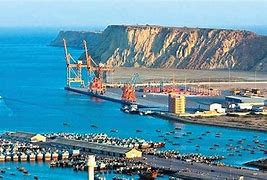Prime Minister Shehbaz Sharif has instructed relevant authorities to integrate the $8 billion Diamer Bhasha Hydropower Project (DBHP) into the China-Pakistan Economic Corridor (CPEC) framework.
According to a report, the Ministry of Water Resources has relayed the Prime Minister’s directive to the Power Division and the Private Power and Infrastructure Board (PPIB) for further steps to include DBHP in CPEC.
PowerChina, a Chinese company already involved in constructing the Roller-Compacted Concrete (RCC) dam portion of the project, is bidding for the second phase, which includes building the underground powerhouse and power generation facilities.
PowerChina Chairman Yanzhang, in a letter to the Prime Minister, committed to ensuring the project’s timely and high-quality completion, utilizing the resources and equipment already at the site. The project, managed by Wapda, has significant benefits, including storing 6.4 million acre-feet (MAF) of water and generating 18.1 billion units of electricity annually.
The estimated cost of electricity from the project is around Rs15 per unit, based on last year’s exchange rate. However, additional foreign financing is required, with $3.5 billion needed beyond the secured $500 million. This includes $1.2 billion in equity and $2.3 billion in foreign debt.
Currently, Wapda is funding the project through revenues from its hydropower tariffs, recovering only the power generation costs from consumers. Wapda’s funding sources include energy sales and annual grants from the Public Sector Development Program (PSDP) for water infrastructure development.
Two Phases of Diamer Bhasha Dam
The Diamer Bhasha project is being executed in two phases: dam construction and power generation. The PC-I for the dam was approved by the Executive Committee of the National Economic Council (ECNEC) in 2018, with a cost estimate of Rs480 billion.
The second revised PC-I for land acquisition and resettlement, valued at Rs175 billion, was approved in September 2021. In April 2023, the PC-I for power generation was approved, costing Rs1,424.36 billion, including a foreign exchange component of Rs715.88 billion ($2.55 billion) and a local component of Rs78.48 billion.
Power Minister Sardar Awais Leghari informed the Senate Standing Committee on Power that hydropower projects like Diamer Bhasha are under review for cost-effectiveness. He also noted that the absence of a transmission line could add costs, and a feasibility study is planned to assess the financial impact.
Federal Minister for Water Resources Musadik Masood Malik emphasized the potential for surplus electricity if Pakistan achieves a 3-6% GDP growth rate in the next decade. He supported continuing the project but highlighted the risks of delays and the importance of achieving financial closure.
Related Posts?
Pakistan, China to restructure $16bn in CPEC power debt during PM Li Qiang’s visit

















